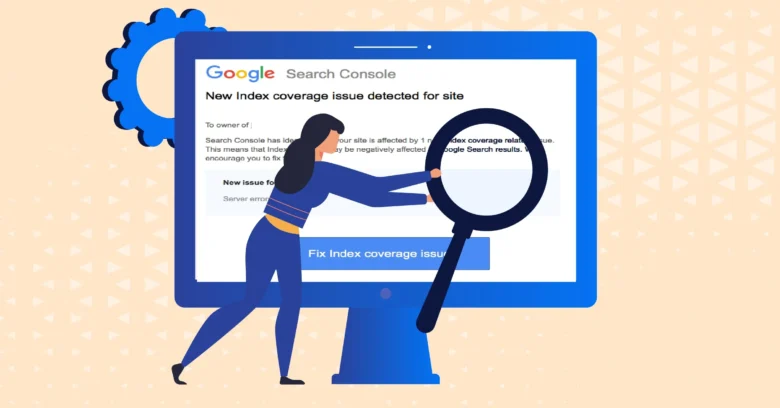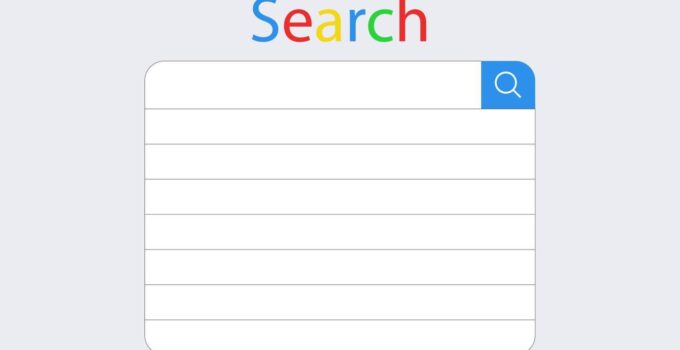We’ve all been there—you type a specific question into a search engine, expecting a helpful answer. But instead of finding what you’re looking for, you’re served unrelated articles, outdated links, or commercial content that completely misses the point. So what’s going on?
This article explores why certain search results fail to appear when you need them most. From algorithm filters to indexing mishaps, there’s more behind your missing results than meets the eye. And once you understand how search engines think, you’ll know how to outsmart the system.
Key Highlights
- Search engines filter content aggressively to prioritize relevance.
- User history and device location shape personalized results.
- Poor SEO or indexing errors can keep good content hidden.
- Filters, restrictions, and country bans block entire pages silently.
- Some content gets buried under high-authority websites.
- Detection tools like ChatGPT detector help assess content legitimacy.
Search Engine Logic Isn’t as Simple as You Think

Source: au.pcmag.com
When people say, “Google knows everything,” they’re only partly right. Google and other search engines index a massive chunk of the web, but they don’t show it all. Their algorithms act like bouncers at a club—only letting the “best” or most relevant content through the door.
Here’s the twist: what counts as “best” is shaped by countless ranking factors, including:
- Site authority (measured by backlinks and trustworthiness)
- Freshness (how recently the content was updated)
- Content structure (headers, internal links, readability)
- User engagement (how long people stay on the page)
- Mobile-friendliness and page speed
So even if the content you’re looking for exists, it may not be ranked highly enough to make the first few pages. And let’s face it—most of us never scroll past page two.
Personalization and the Filter Bubble
Have you noticed how your search results seem to reflect your past interests or even your location? That’s not by accident.
Search engines tailor your results based on:
- Your previous searches
- Browsing and click history
- The device you’re using
- Your geographic location
- Your language and region settings
This personalization creates what’s known as a filter bubble, where your search engine keeps showing you content it thinks you’ll like—even if it’s not the most relevant.
To break out of this loop, try searching in incognito mode, using a VPN, or switching to a privacy-focused engine like DuckDuckGo.
The Problem With Content Indexing

Source:youtube.com
Let’s talk about the backstage of the internet.
Search engines send out bots (also called crawlers or spiders) to scan websites and collect information. This is how pages get indexed. But if a site isn’t indexed, it’s essentially invisible to search engines.
Here’s why pages might not get indexed:
- They’re blocked by a txt file or noindex tag.
- The site is too new or rarely updated.
- It loads too slowly or uses heavy scripts (JavaScript frameworks).
- It has poor internal linking or lacks a sitemap.
So even if a page is exactly what you need, search engines can’t show it if they don’t know it exists.
When AI Content Becomes a Ranking Issue
The rise of AI-generated content has added another layer to this problem. Some content online is now automatically written, and while it’s often helpful, it’s not always considered valuable by search engines.
Many platforms now use filters to detect and suppress AI-generated content that lacks originality. That’s why some surprisingly good pages get buried—they were created too fast, with too little human oversight.
This is where a ChatGPT detector comes in. It helps you determine if content was generated by AI, giving you context on why it might be ranked lower or even filtered out.
In industries like education, health, and finance, originality and source trust are critical—and even slight hints of AI involvement can affect visibility.
Filters, Blocks, and Geo-Restrictions
Sometimes, your search results are limited not by SEO but by filters and regional restrictions that you may not even realize are active.
Common reasons include:
- SafeSearch is turned on by default in many browsers and filters out “sensitive” or adult content—even when it’s educational or harmless.
- Copyright laws prevent certain media or sites from showing in specific countries.
- Governments or ISPs block domains, especially in politically controlled regions.
- Language filters restrict non-local results, even when you type in English.
Tip: If you’re not seeing what you expect, disable SafeSearch or adjust your language/location settings manually.
Too Broad or Too Narrow? Query Problems
Sometimes, it’s not the search engine—it’s the searcher.
If you enter a query that’s too broad (like “best laptop”), you’ll be flooded with general content and sponsored results. On the other hand, if you search for something too specific (“2022 laptop charger wattage for Dell G5”), the algorithm might not find a close enough match.
What helps:
- Use quotation marks for exact matches: “how to reset Dell G5 BIOS”
- Use minus signs to exclude results: apple -fruit
- Use advanced operators:
- site:reddit.com to search on Reddit
- filetype:pdf to find PDF documents
- intitle:guide to target page titles
With a few tweaks, even difficult searches can deliver gold.
Drowned Out by Bigger Sites
Search engines love authority. So unless a smaller website has built a strong backlink profile and SEO foundation, it will get pushed down below large, trusted domains.
Examples of dominating sites:
- Wikipedia
- Amazon
- Quora
- News aggregators
This leads to content drowning, where lesser-known but valuable pages get buried under generic, top-tier sites. If you’re researching a niche topic, you might have to scroll past the “giants” or dig deeper through pagination.
Smart Strategies to Get Better Results

Source: raincross.com
Want to beat the system? Here are a few tested strategies to surface better results when the usual approach fails:
- Use site-specific search: site:medium.com deep sleep tips
- Try lesser-used engines: DuckDuckGo, Startpage, Brave Search
- Reverse your query: Instead of “why can’t I find X,” try “how to find X”
- Look beyond Google: Search within YouTube, Reddit, or niche forums
- Use the date filter: Restrict results to the last year/month to avoid outdated pages
And if you’re analyzing content reliability, check whether it was likely created by a human or AI.
Final Thoughts
There’s no single reason why search results fail to show up when you need them—it’s often a combination of ranking factors, personalization filters, indexing gaps, and content overload.
Knowing how to ask better questions, clear your settings, and dig deeper can turn a frustrating search into a productive one. You don’t need to settle for vague or irrelevant results. With the right tools and a little curiosity, you can find what’s truly useful—right when you need it.




